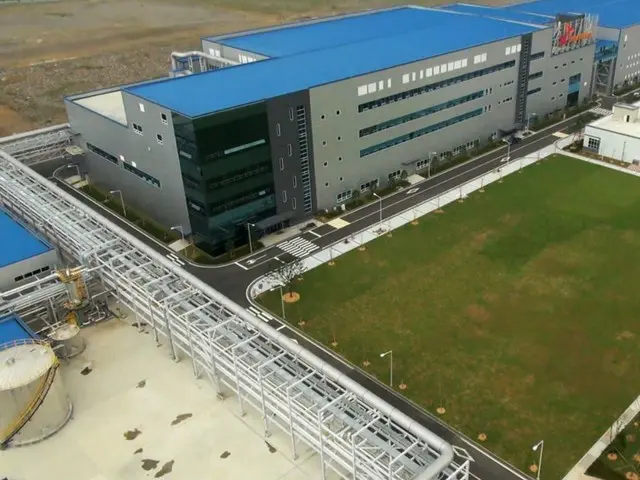The new vehicles are expected to be equipped with a cobalt-manganese battery. To this end, SK On has begun expansion work at its Seosan plant in Seosan, Chungcheongnam-do.
According to industry sources on the 24th, Hyundai Motor and SK On are in talks to supply batteries for the Ioniq 9, and the batteries produced at the Seosan plant will be installed in the new car.
SK On is preparing to expand production next year while maintaining its current production lines.
As part of this, the Seosan Factory is now handling chemical substances and carrying out electrical work for the factory expansion.
The company has completed negotiations to provide the necessary facilities and recently received approval from Seosan City Hall for the safety plan for the construction work.
The company will begin full-scale construction of a new facility, which is scheduled for completion next year, to increase production of high-performance high-nickel NCM batteries.
It is the birthplace of SK Group's electric vehicle battery business and plays an important role in its expansion into the global market.
Industry sources involved in the talks said Hyundai Motor and SK On
It appears that a certain agreement has been reached regarding the installation of batteries in the Ioniq 9, and given their long-standing collaborative relationship, they say there should be no disruption to the business.
The Ioniq 9 is a new electric vehicle under the Ioniq brand that Hyundai Motor will launch for the first time in two years, following the Ioniq 5 in 2021 and the Audi Q5 in 2022.
This model follows the Ioniq 6. This vehicle was developed based on Hyundai's electric vehicle platform E-GMP and is the top model of the Ioniq, and is a sister model to the Kia EV9.
If the Ioniq 9 is equipped with SKOn batteries, it is expected to have a driving range of between 400 and 500 kilometers.
Hyundai Motor is already using SK On batteries in its Ioniq 5, GV60-70, EG80 and other models, while the Kia EV9 is equipped with SK On batteries with enhanced fast charging capabilities.
The battery cells are made from Advanced SF batteries. The two companies also continue to cooperate in the battery industry as a whole. In April last year, they established a battery cell joint venture in the United States.
The two companies announced plans to establish a joint venture and decided to invest a total of 6.5 trillion won (approximately 732.6 billion yen) to build a factory with an annual capacity of 35 gigawatt hours (GWh) in Bartow County, Georgia.
This is equivalent to the amount needed for about 300,000 electric vehicles. The battery cells produced at this factory will be assembled into battery packs by Hyundai Mobis and shipped to Hyundai Motors, which produces them locally.
The battery will be installed in the Genesis electric vehicle in Asia. Hyundai is also building a new electric vehicle factory, Hyundai Motor Group Metaplant America (HMGMA), in Georgia.
It will begin operations in October of this year.
2024/04/25 06:18 KST
Copyrights(C) Herald wowkorea.jp 104

